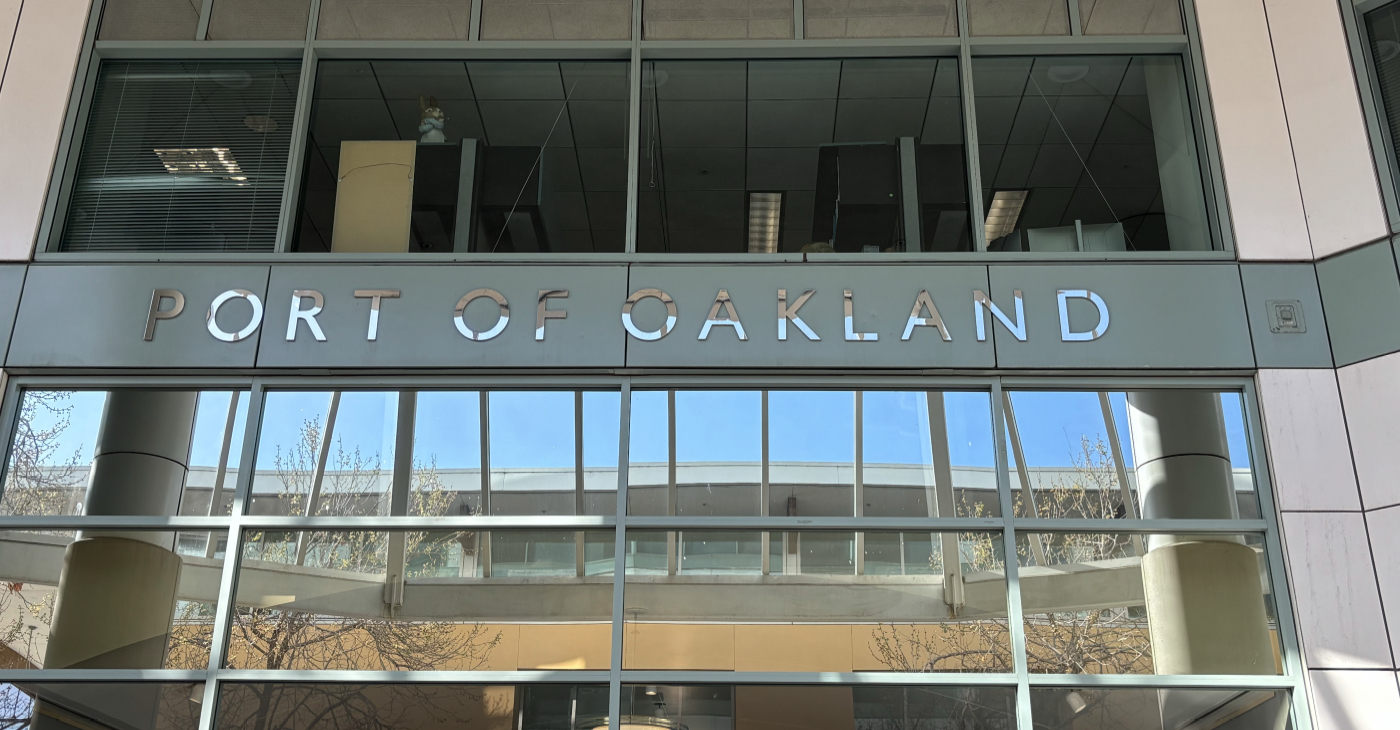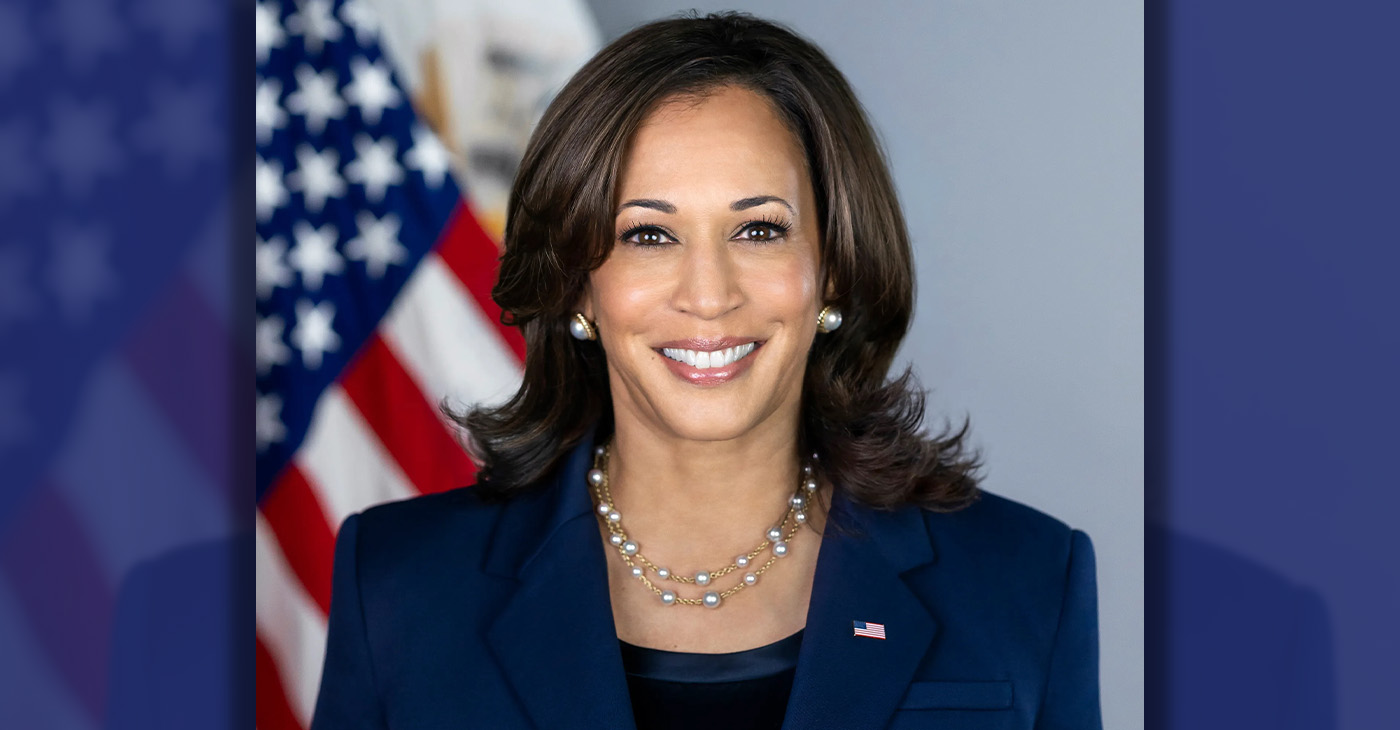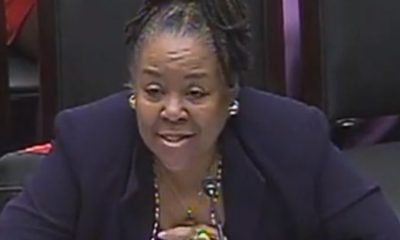Economy
Fight for Equal Pay, Gender Parity Heats Up
WASHINGTON INFORMER — Despite the United States touting itself as the bastion of freedom and equality, women in this country — despite comprising 50.8 percent of the population — have always found themselves in the position of having to fight for salary and wages comparable to men.
By Barrington M. Salmon, Special to The Informer via NNPA Newswire
Despite the United States touting itself as the bastion of freedom and equality, women in this country — despite comprising 50.8 percent of the population — have always found themselves in the position of having to fight for salary and wages comparable to men.
A range of studies show some progress, but stubborn racial and gender wage gaps persist in the United States. Often, researchers point to disparities in education, the fact that many African-American women and other women of color are clustered at the lower end of the pay scale and that the minimum wage hasn’t been increased since 2007 as factors contributing to the wage gap. But what’s often downplayed or ignored is the racism and sexism that’s also at play.
Black women sit at the nexus of race and gender and are buffeted by the twin spectres of these “isms”, and struggle upstream against a current of prejudice and bias which is compounded by gender and race. This intersectional discrimination exacerbates those gender and race gaps, stymies Black women’s ability to access educational opportunities, and has a pervasive and corrosive impact on their careers and career advancement, experts say.
The wage gap has real-world consequences.
Dr. Avis Jones-DeWeever said that over their lifetimes, Black women stand to lose between $800,000 and $1 million because of these disparities.
“While the gender pay gap is an issue for all women, it is an especially wicked problem for black women,”said Dr. Jones-DeWeever, a women’s empowerment expert, international speaker and diversity consultant. “Black women are already economically disadvantaged and face double discrimination within the workforce. The additional burden of a 38 percent pay gap exacerbates the black wealth gap in America. It’s such an engrained problem. The typical Black woman will lose more than $800,000 over her lifetime, and in DC, the inequality means that Black women could lose more than $1 million.”
“A black woman has to earn a B.A. to earn what a white man with a GED would earn. It’s huge and really hardwired into the system,” continued Dr. Jones-DeWeever, who, among her many portfolios, mentors and instructs black women on how to navigate the shoals of business and achieve career and financial success. “It’s devastating because with Black college-educated women making as much as 30 percent less than their white male counterparts, that’s a huge disadvantage. That means not being able to put food on the table, buy clothes for your children, not being able to have a better quality of life or diverting money to wealth-building.”
According to the National Partnership for Women and Families (NPWF), median wages for black women in the United States are $36,227 per year, compared to median wages of $57,925 annually for white, non-Hispanic men. This amounts to a difference of $21,698 each year. In that same report, NPWF also highlighted that if the wage gap were eliminated, on average, a black woman working full time, year-round would have enough money for:
- Two and a half years of child care
- Nearly 2.5 additional years of tuition and fees for a four-year public university, or the full cost of tuition and fees for a two-year community college
- 159 more weeks of food for her family (three years’ worth)
- More than 14 additional months of mortgage and utilities payments
- 22 more months of rent.
The National Women’s Law Center reports that women of every race are paid less than men, at all education levels — and it only gets worse as women’s careers progress.
“Despite the fact that women have made enormous gains in educational attainment and labor force involvement in the last several decades, unequal pay remains pervasive in 97 percent of occupations, showing that no matter what their job, women are paid less than men doing the same job in nearly every sector of work,” an NWLC fact sheet noted.
Women who work full time, year-round in the United States are paid just 80 cents for every dollar paid to their male counterparts. This gap, which amounts to a typical loss of $10,086 per year for a working woman — or $403,440 over a 40-year career — means that women have to work 15 months … to make what men did in the previous 12-month calendar year.”
Studies by gender specialists, academics and women’s activists have statistics showing that the occupations African-American women have does not explain away the Black women’s wage gap, the NWLC said.
- For example, Black women working as physicians and surgeons—a traditionally male, high wage occupation—make 54 cents for every dollar paid to white, non-Hispanic men working as physicians and surgeons.
- Black women working as customer service representatives—a mid-wage, female dominated occupation—make 75 cents for every dollar paid to white, non-Hispanic men working as customer service representatives.
- Black women working as construction laborers—a traditionally male, mid-wage occupation—make 81 cents for every dollar paid to white, non-Hispanic men working as construction laborers.
- Black women working as personal care aides—a heavily female, low wage occupation—make 87 cents for every dollar paid to white, non-Hispanic men working as personal care aides.
In addition, Black women experience a wage gap even in occupations where they are over-represented. More than two in five African-American women (44.8 percent) are employed in one of 10 occupations. In every one of those occupations, Black women are typically paid less than white, non-Hispanic men. Among the 10 most common occupations for Black women, two of those occupations — cashiers and retail salespeople and janitors, building cleaners, maids, and housekeepers — typically pay Black women a very low wage — less than $10 per hour — while they typically pay white, non-Hispanic men substantially more.
Some solutions, NWLC experts say, include strengthening America’s pay discrimination laws, pushing harder to get Congress to pass the Paycheck Fairness Act, The Pregnant Workers Fairness Act, the Family Act and the Schedules That Work Act — all which would address the discrimination women face when they’re pregnant or caregiving and support those who need paid leave, predictable work schedules, and stability for themselves and their families.
Raising the federal minimum wage is yet another way to move towards parity. So far, six states and the District of Columbia have increased the minimum wage to $15 over the next few years.
Another solution is making the Earned Income Tax Credit more widely available to needy recipients. The EITC is a tax credit designed to offset payroll taxes and supplement wages for people working in low-wage jobs, providing the most benefits to low- to moderate-income families with children. The federal EITC lifted more than 1.2 million women 18 and older and nearly 3.5 million children out of poverty in 2017, and 28 states and the District of Columbia currently offer their own EITCs to provide an additional boost.
Dalana A. Brand, vice president of Global Total Rewards at Electronic Arts, Inc., contends that Black women can’t afford to wait, arguing in an opinion piece last year for Blavity, an Internet media company, that in the midst of the flurry of publicity, tweets, posts, hashtags and calls for change, one important element is missing.
“What often gets left out of that discussion is that the hallmark day in April does not apply to black women and other women of color,” she said. “… So, while white women caught up on April 10, black women must wait for over half the year to pass before our wages catch up to what men made a year ago.”
Brand, a highly-sought after salary strategist and career transformation coach, said black women are paid 38 percent less than white men and 21 percent less than white women but “the sad fact is that most people are either unaware or don’t care about the appalling disparity black women face with respect pay equity.”
She added that a study by LeanIn.Org, which partnered with Survey Monkey and the National Urban League, indicates that a third of Americans aren’t aware of the pay gap between black women and white men, and half of them don’t know about a similar gap between black and white women.
Much like the feminist movement, black women are being largely ignored by the equal pay movement,” she added.
Dr. Jones-DeWeever and Brand said that as career strategists and salary consultants, there are a number of things that Black women can and need to do to fight back against wage disparities. The first action is for Black women to embrace their power and value and translate that into dollars and benefits during salary negotiations.
“We don’t understand the basics of negotiating,” Dr. Jones-DeWeever said. “We have to understand our value and how to negotiate. When you’re first hired, that’s when you’re most powerful. I never accept the first offer. The first offer is only the beginning of negotiations. You’d be surprised how much money you can get. You have to negotiate for money, a package and vacation.
Black communities must also take other tacks to confront and topple this problem, they said.
“The reality of racism means that Black women will be offered less,” said Dr. Jones-DeWeever. “In terms of fixing it, we have to have conversations about financial literacy and we also have a responsibility to educate our children about their power, worth and value and empowering them.”
Brand concurred.
To date, she said, much of the equal pay movement has been focused on awareness building campaigns and encouraging women to effectively negotiate their salaries.
“While these are important steps, this is only scratching the surface,” Brand explained. “Getting to pay parity must also involve addressing the corporate systems and state and federal laws that need to change. As black women we must unify and use our collective voices to push pay equality and the racial wealth gap to the top our agenda. Black women have always been at the forefront of the push for equality in our country, whether it was civil rights or social justice, we have been critical forces for change. The equal pay movement should be no different.”
Brand and Dr. Jones-DeWeever are called in frequently to consult with Fortune 500 and other companies. They said Black women should also be actively engaged in tackling the equal pay issue within corporate America by participating in employee resource groups at work and collectively guaranteeing that the companies they work for are held accountable for addressing these issues.
African-American churches, sororities and fraternities and civil society and community organizations need to actively engage in the political process and pressure elected officials to advance additional laws designed to protect against gender discrimination and pay inequality, they said, and concerned people also need to organize efforts and/or sign petitions to demand to push the government to act.
This article originally appeared in the Washington Informer.
Business
Black Business Summit Focuses on Equity, Access and Data
The California African American Chamber of Commerce hosted its second annual “State of the California African American Economy Summit,” with the aim of bolstering Black economic influence through education and fellowship. Held Jan. 24 to Jan. 25 at the Westin Los Angeles Airport Hotel, the convention brought together some of the most influential Black business leaders, policy makers and economic thinkers in the state. The discussions focused on a wide range of economic topics pertinent to California’s African American business community, including policy, government contracts, and equity, and more.

By Solomon O. Smith, California Black Media
The California African American Chamber of Commerce hosted its second annual “State of the California African American Economy Summit,” with the aim of bolstering Black economic influence through education and fellowship.
Held Jan. 24 to Jan. 25 at the Westin Los Angeles Airport Hotel, the convention brought together some of the most influential Black business leaders, policy makers and economic thinkers in the state. The discussions focused on a wide range of economic topics pertinent to California’s African American business community, including policy, government contracts, and equity, and more.
Toks Omishakin, Secretary of the California State Transportation Agency (CALSTA) was a guest at the event. He told attendees about his department’s efforts to increase access for Black business owners.
“One thing I’m taking away from this for sure is we’re going to have to do a better job of connecting through your chambers of all these opportunities of billions of dollars that are coming down the pike. I’m honestly disappointed that people don’t know, so we’ll do better,” said Omishakin.
Lueathel Seawood, the president of the African American Chamber of Commerce of San Joaquin County, expressed frustration with obtaining federal contracts for small businesses, and completing the process. She observed that once a small business was certified as DBE, a Disadvantaged Business Enterprises, there was little help getting to the next step.
Omishakin admitted there is more work to be done to help them complete the process and include them in upcoming projects. However, the high-speed rail system expansion by the California High-Speed Rail Authority has set a goal of 30% participation from small businesses — only 10 percent is set aside for DBE.
The importance of Diversity, Equity and Inclusion (DEI) in economics was reinforced during the “State of the California Economy” talk led by author and economist Julianne Malveaux, and Anthony Asadullah Samad, Executive Director of the Mervyn Dymally African American Political and Economic Institute (MDAAPEI) at California State University, Dominguez Hills.
Assaults on DEI disproportionately affect women of color and Black women, according to Malveaux. When asked what role the loss of DEI might serve in economics, she suggested a more sinister purpose.
“The genesis of all this is anti-blackness. So, your question about how this fits into the economy is economic exclusion, that essentially has been promoted as public policy,” said Malveaux.
The most anticipated speaker at the event was Janice Bryant Howroyd known affectionately to her peers as “JBH.” She is one of the first Black women to run and own a multi-billion-dollar company. Her company ActOne Group, is one of the largest, and most recognized, hiring, staffing and human resources firms in the world. She is the author of “Acting Up” and has a profile on Forbes.
Chairman of the board of directors of the California African American Chamber of Commerce, Timothy Alan Simon, a lawyer and the first Black Appointments Secretary in the Office of the Governor of California, moderated. They discussed the state of Black entrepreneurship in the country and Howroyd gave advice to other business owners.
“We look to inspire and educate,” said Howroyd. “Inspiration is great but when I’ve got people’s attention, I want to teach them something.”
Bay Area
Port of Oakland Commission Votes to Change Oakland Airport to ‘San Francisco Bay Oakland International Airport’
The Port of Oakland Commission voted unanimously to change the name of Metropolitan Oakland International Airport to San Francisco Bay Oakland International Airport at a commission meeting Thursday afternoon. The Port initially announced the name change on March 29, claiming that the change will attract more passengers and enhance the airport’s visibility. They contend that the airport often gets neglected by the public’s lack of knowledge of Oakland’s proximity to San Francisco.

By Magaly Muñoz
The Port of Oakland Commission voted unanimously to change the name of Metropolitan Oakland International Airport to San Francisco Bay Oakland International Airport at a commission meeting Thursday afternoon.
The Port initially announced the name change on March 29, claiming that the change will attract more passengers and enhance the airport’s visibility. They contend that the airport often gets neglected by the public’s lack of knowledge of Oakland’s proximity to San Francisco.
“We want people to know where Oakland is and how beautiful our city is. We want them to visit, we want them to spend their money, and we want to keep our money into our local economy,” Port Commission President Barbara Leslie said at the meeting.
The commissioners shared anecdotal experiences and research to explain how this new name change will elevate and add to the growth of Oakland, not take away from their Bay Area neighbors.
The Port claimed that local residents had been asking for more options in domestic and international flights, but in order to do that, outside travelers need to be aware of Oakland’s presence first.
Since the announcement of the new name, San Francisco leaders strongly opposed the suggestion for a change, the City Attorney going as far as threatening legal action.
SF City Attorney David Chiu announced Monday that his team sent a letter to the Port of Oakland, writing that if Oakland goes forward with the name change, the city will go forward with a lawsuit to prevent the use of their trademarked name.
San Francisco owns U.S. federal trademark registrations for the marks “San Francisco International Airport”, the letter says.
Chiu further claimed that the name change will only cause confusion and chaos for travelers who are used to seeing the San Francisco name in the SFO trademark.
“We want to see the entire Bay Area thrive as a tourist destination and expand our offerings to visitors, but this proposal is not a legal or practical way to go about it. If Oakland moves forward with this proposal, San Francisco will pursue legal action to prevent misuse of our trademark,” Chiu said.
SF Mayor London Breed joined Chiu’s letter, stating that Oakland does not need to add the internationally popular city to its brand in order to grow its services.
“[Oakland] is rich in culture and wonderful people and has its own unique identity. It does not need the name San Francisco as part of its airport to stand out,” Breed wrote.
The Port defended its proposed actions, saying that if the vote did go forward, they would “take all appropriate measures to defend its right to use this accurate geographic identifier.”
“The proposed name modification will clarify, not confuse. The new name identifies where OAK is actually located, which is on the San Francisco Bay,” a spokesperson said on behalf of the Port.
Support for the name change extends beyond the Port. Several regional leaders, airlines and community members have come out in support of the name change, including Oakland Mayor Sheng Thao.
“This adjustment isn’t just about signage—it’s about inviting travelers to discover all that Oakland and the region have to offer. From our local dining scene to unique shopping spots and cozy hotels, there’s something here for everyone. Let’s work together to ensure that Oakland Airport continues to serve as a welcoming gateway for visitors and a source of pride for our community,” Thao said.
Because of public outcry amongst residents and leaders in Oakland and San Francisco before and during the Commission meeting, the Board decided to extend the second reading for the proposed name change from the end of April to the first meeting in May. This decision will allow commissioners to connect with community groups and leaders over their concerns for the change.
The Port Commission is scheduled to hold a second reading of the proposed name change on May 9.
Business
V.P. Kamala Harris: Americans With Criminal Records Will Soon Be Eligible for SBA Loans
Speaking in Las Vegas on Jan. 27, Vice President Kamala Harris announced a forthcoming federal rule that will extend access to Small Business Administration (SBA) loans to Americans who have been convicted of felonies but have served their time. Small business owners typically apply for the SBA loans to start or sustain their businesses.

By California Black Media
Speaking in Las Vegas on Jan. 27, Vice President Kamala Harris announced a forthcoming federal rule that will extend access to Small Business Administration (SBA) loans to Americans who have been convicted of felonies but have served their time.
Small business owners typically apply for the SBA loans to start or sustain their businesses.
Harris thanked U.S. Rep. Steven Horsford (D-NV-04), the chair of the Congressional Black Caucus, for the work he has done in Washington to support small businesses and to invest in people.
“He and I spent some time this afternoon with business leaders and small business leaders here in Nevada. The work you have been doing to invest in community and to invest in the ambition and natural capacity of communities has been exceptional,” Harris said, speaking to a crowd of a few hundred people at the Brotherhood of Electrical Workers Hall in East Las Vegas.
On her daylong trip, Harris was joined by Horford, SBA Administrator Isabella Guzman, Interim Under Secretary of Commerce for Minority Business Development Agency (MBDA) Eric Morrissette, and Sen. Catherine Cortez Masto (D-Nev).
“Formerly incarcerated individuals face significant barriers to economic opportunity once they leave prison and return to the community, with an unemployment rate among the population of more than 27%,” the White House press release continued. “Today’s announcement builds on the Vice President’s work to increase access to capital. Research finds that entrepreneurship can reduce recidivism for unemployed formerly incarcerated individuals by as much as 30%.”
-

 Activism4 weeks ago
Activism4 weeks agoOakland Post: Week of March 27 – April 2, 2024
-

 #NNPA BlackPress4 weeks ago
#NNPA BlackPress4 weeks agoBeloved Actor and Activist Louis Cameron Gossett Jr. Dies at 87
-

 Community2 weeks ago
Community2 weeks agoFinancial Assistance Bill for Descendants of Enslaved Persons to Help Them Purchase, Own, or Maintain a Home
-

 Activism3 weeks ago
Activism3 weeks agoOakland Post: Week of April 3 – 6, 2024
-

 Business2 weeks ago
Business2 weeks agoV.P. Kamala Harris: Americans With Criminal Records Will Soon Be Eligible for SBA Loans
-

 Activism2 weeks ago
Activism2 weeks agoOakland Post: Week of April 10 – 16, 2024
-

 Community2 weeks ago
Community2 weeks agoAG Bonta Says Oakland School Leaders Should Comply with State Laws to Avoid ‘Disparate Harm’ When Closing or Merging Schools
-

 Community1 week ago
Community1 week agoOakland WNBA Player to be Inducted Into Hall of Fame
























































